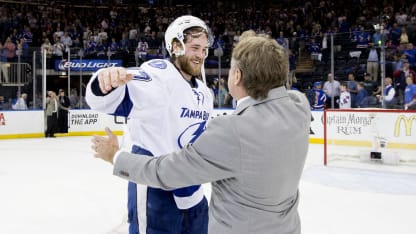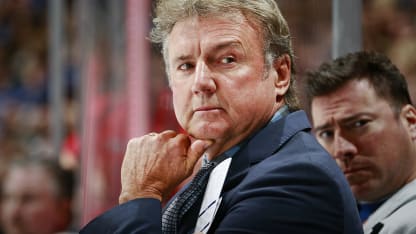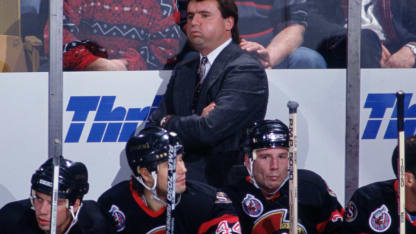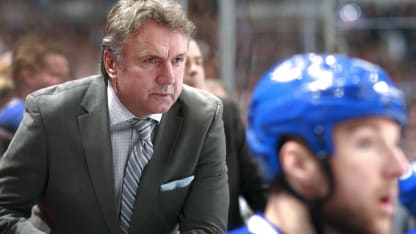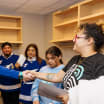"I wasn't a very good player," Bowness said. "I knew by the time I hit my mid 20s that I loved the game, I wanted to stay in the game, the only way I was going to do that was to get into coaching. In fact, the last contract I negotiated as a player -- and I did my own contracts, I wasn't good enough to need an agent anyway - I had a clause in my contract that I got X amount of dollars as a player and if I decided to retire or they asked me to get into coaching, this was the salary as a coach…I was only 28 years old, so I figured, 'If this doesn't work out, I'll go back and play a few more years in the minors.'"
By December, it became clear Racette wasn't going to be able to return to coach that season, his recovery still ongoing. The Jets asked Bowness if he could remain player-coach for the remainder of the season.
"I was thrown into the fire," Bowness remembers fondly.
The circumstances surrounding Bowness' first head coaching gig were less than ideal. Sherbrooke was beginning its first season in the AHL and barely had enough players to ice a team. The Jets brought in retired players from the Quebec Senior League just to fill the roster.
They would finish the season in last place in the North Division, winning just 22 of 80 games.
"We never should have gotten in (the AHL) to begin with," Bowness said. "I think we realized that once we got to training camp and went, "Wow, we don't have enough depth here. Where are we going to get some players?' It was a scramble."
Fast forward 35 years later and Bowness, now the associate head coach for the Tampa Bay Lightning, is on the precipice of a remarkable coaching milestone in the NHL, one he never could have predicted following that first dismal season in Sherbrooke.
In Tuesday's 5-0 shutout win over the Los Angeles Kings, Bowness tied Scotty Bowman's record of 2,164 games behind a NHL bench as a head or associate/assistant coach.
Tonight, when the Lightning take on the Minnesota Wild at the Xcel Energy Center, Bowness will become the all-time leader, coaching in his 2,165th game.
